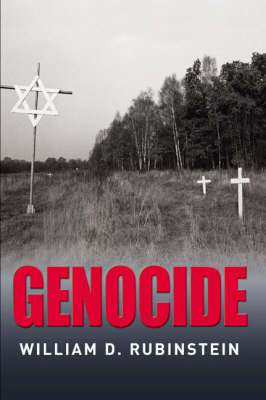Discover the many different facets of war; from military encounters to films and collaboration and discover just why the Second World War is so important to the British memory Comprising of five key titles: Genocide "Genocide "is the grimmest and most relevant of modern tragedies. This stimulating and original work provides the definitive acount of genocide, and is essential reading for all who wish to understand the real meaning of mass murder throughout history. Dangerous Liaisons The Nazi regime in Germany was terrible enough without even accounting for the policy of collaboration. So what extra does collaboration say about Hitler and his plans for Europe? Peter Davies explores the mindset and political attitudes of Hitler and also many other controversial pro-Nazi leaders in Western Europe, Scandanavia, Central and Eastern Europe, and also beyond. Delving into four different "types" of collaboration: political, financial, the Holocaust, and collaboration at a social level, he asks some difficult questions. The story of collaboration is brought up to date, assessing both the legacy and its contemporary parallels. We Can Take It! 'We Can Take It!' shows that the British remember the war in a peculiar way, thanks to a mix of particular images and evidence.Our memory has been shaped by material which is completely removed from historical reality.
These images (including complete inventions) have combined to make a new history. The vision is mostly cosy and suits the way in which the Britons conceive of themselves: dogged, good humoured, occasionally bumbling, unified and enjoying diversity. In fact Britons load their memory towards the early part of the war (Dunkirk, Blitz, Battle of Britain) rather than when we were successful in the air or against Italy and Germany with invasions. This suits our love of being the underdog, fighting against the odds, and being in a crisis. Conversely, the periods of the war during which Britain was in the ascendant are, perversely, far more hazy in the public memory. The Battleof the Bulge After their success in Normandy in the summer of 1944, the Allies thought that the war would be 'over by Christmas'. In the late autumn, despite the relative failure of the Arnhem operation, the Allied armies were poised to smash the Siegfried Line and invade the Third Reich. The vital port of Antwerp was at last disgorging supplies. ULTRA (code-breaker) was not forecasting any particular problems.A feeling of complacency persuaded Eisenhower and Montgomery to relax.
Adolf Hitler, had decided in the autumn on 1944 to take an incredible gamble. If it had succeeded, he would have seized the crucial supply port of Antwerp, and divided and cut off the whole British and Canadian 21st Army Group as well as at least one of the American armies. The end-game could have meant their surrender or at best a second 'Dunkirk'. Hitler's superbly well concealed Panzer army struck in the Ardennes in mid-December. Thick fog and low-cloud prevented air reconnaisance. English-speaking German commandos in captured jeeps created immense panic. American divisions were surrounded and captured. It was one of the most dramatic moments of World War Two. The turning point came after ten days of mist, fog and low cloud, when the skies cleared and the avenging Thunderbolts of the Allied air forces inflicted mortal damage on the Panzer armies. This book tells the story of Hitler's last plan and of how close he came to success. Invasion! Operation Sea Lion, 1940 This history (part history, part story) explores what could have happened during World War II.The Battle of Britain was launched in July 1940 and Hitler issued directives for a landing operation against England, named Operation Sealion.
Fortunately for Britain it was cancelled on 12 October. However, this book explores the alternative - that Operation Sealion began as planned on 21 September. The book follows the real course of events up to 1 September, including the planning in Britain and Germany, and the aerial war. The fictional story then supposes that the Germans halted their advance in France along the Seine and the Aisne after the fall of Paris and that Marshal Petain conceded an armistice at that point. The Panzer divisions are thus able to rest and re-equip in northern France...This terrifying alternative reality is actually based on historical facts such as the massing of barges in ports from Antwerp to Le Havre and the air-raids carried out by Bomber command against them. A brilliant blend of meticulous research and imagination, this book is bound to appeal to anyone with an interest in the causes and effects of historical events, and indeed to anyone interested in history itself.
- ISBN10 1405812583
- ISBN13 9781405812580
- Publish Date 18 January 2005
- Publish Status Out of Print
- Out of Print 13 April 2006
- Publish Country GB
- Publisher Pearson Education Limited
- Imprint Longman
- Language English
